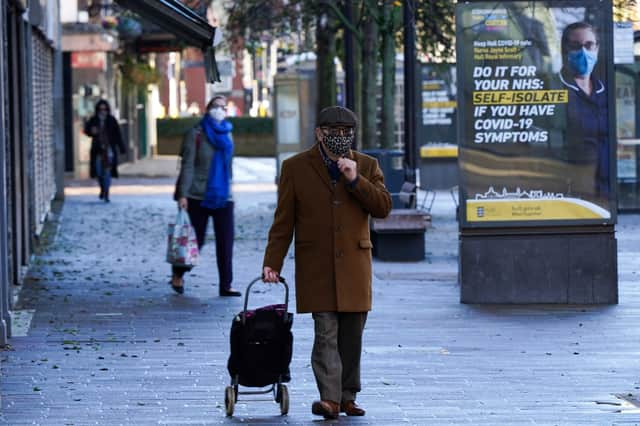Stormont ministers meet to discuss roadmap for leaving lockdown


Since Christmas people have only been able to leave home for essential purposes such as work or exercise.
Many school children have been confined to remote learning.
Non-essential retail has closed, along with leisure and hospitality industries.
Advertisement
Hide AdAdvertisement
Hide AdFive parties in Stormont’s power-sharing ministerial Executive will debate whether to extend restrictions beyond March 5 or begin gradually lifting them.
Stormont Education Minister Peter Weir has said he expects a definitive decision around reopening of schools soon.
Ministers have said there is a collective focus on a managed recovery guided by medical and scientific advice.
Health chiefs have urged caution and “baby steps” out of the restrictions.
Advertisement
Hide AdAdvertisement
Hide AdThe lockdown has seen infection rates and numbers admitted to hospital with Covid-19 fall.
Health Minister Robin Swann has said the spread of infectious new variants of coronavirus represented a considerable uncertainty as he pondered future curbs.
Face coverings in shops and on public transport may be needed well into the future, he has warned.
Some limited restrictions may be in place long term.
Restaurants, cafes and bars have been closed with the exception of some takeaway services since December 24.
Pubs have been shut for much of the pandemic.
Advertisement
Hide AdAdvertisement
Hide AdMinisters are set to discuss plans to reopen businesses following the latest lockdown.
Those are likely to be gradual.
Chief medical officer Dr Michael McBride has envisaged a summer similar to last summer’s, when many restrictions were eased.
He has said, as we move through autumn and winter, we are likely to require some additional restrictions, as we have required this winter.
Dr McBride has said as more people at risk of serious illness were vaccinated, the pressures on the health service were likely to ease.